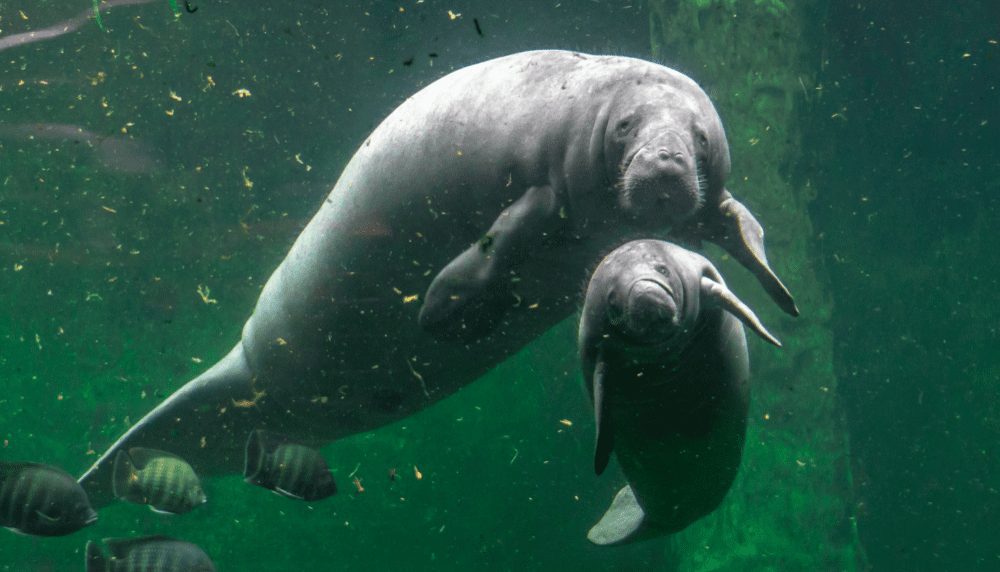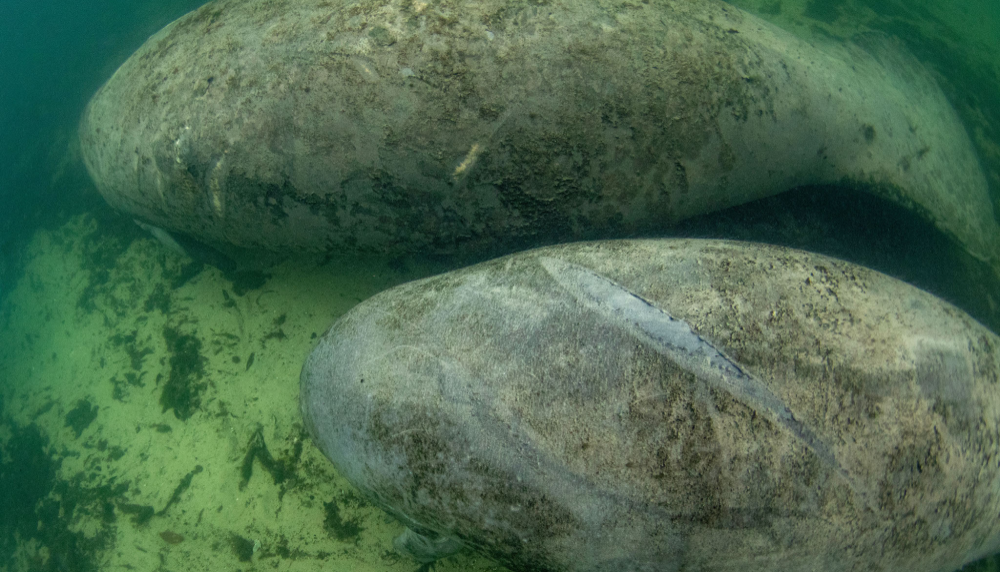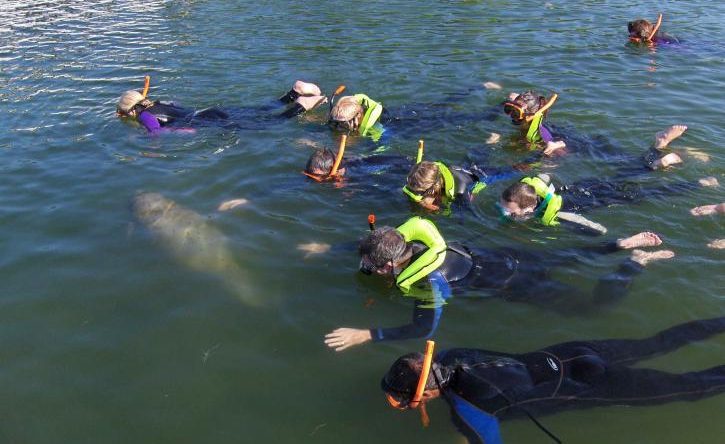Manatees
 The endangered Florida manatee has made little progress toward recovery, principally due to lawsuits. And that progress has been reversed in the last few years due to toxic algae, colder than average temperatures, rampant water pollution and removal of endangered species protections.
The endangered Florida manatee has made little progress toward recovery, principally due to lawsuits. And that progress has been reversed in the last few years due to toxic algae, colder than average temperatures, rampant water pollution and removal of endangered species protections.
With a population hovering at 5,733 animals, the manatee is in danger of spiraling toward extinction. According to the Florida Fish & Wildlife Commission, a total of 800 manatee deaths were recorded in 2022 – 400 of which occurred in the first three months of 2022.
By every measure, the Florida manatee population is not recovering it is teetering on the precipice. Yet both state and federal agencies are moving toward reducing protections for the manatee including stripping the species of its endangered status.
What’s Killing the Manatees?
-
- Starvation is mounting as seagrasses die off, leaving malnourished animals unable to survive in increasingly colder temperatures.
- Water pollution, which suffocates seagrasses and spurs toxic algal blooms, also continues unabated, with little if any state enforcement to curb violations.
- Habitat destruction and disturbance from swarms of tourists in swim-with encounters, or from boaters and fishermen.
- Craft collisions from both personal and business crafts traveling in safe zones at speeds too fast for the slow moving creatures to avoid.
- Unknown: The state has sharply reduced the rate of necropsies, so that precise causes of manatee deaths are harder to pinpoint. In 2022, 406 out of 800 manatees were necropsied leaving ample questions as to cause of death.
Speed Kills
Florida developers are waging an all-out campaign to undo the very protections that are credited with producing a modest rebound in the manatee population that is now back on the decline. With fewer than 4,000 in Florida waters, the manatee remains one of the most endangered marine mammals in North America.
Even as the state is weakening its manatee protections, the U.S. Fish & Wildlife Service is ceding its authority to the state in a grant agreement that puts the state in charge of enforcing boating and waterway rules crucial to manatee survival:
-
-
- Speed Kills. While manatee numbers are up, so too are manatee deaths from propeller wounds. The slow moving manatee is more and more frequently a living (and bleeding) speed bump for fast moving boats;
- What Sign? Under orders from a lawsuit won against it in 2000, FWS is supposed to clearly post warnings and enforce speed limits in designated manatee zones. But there has been no real follow-up and no status reports on the repair needs and visibility of speed limit and warning signs or evaluations of signage effectiveness in preventing manatee deaths or injuries; and
- Pave Paradise and Put up a Parking Dock. Marina construction is eating up manatee habitat at a ferocious rate. A recent policy change by the Army Corps of Engineers and the state has quickened the process for marina and dock approvals.
-
Florida’s Water Pollution is a Real Problem for Manatees
Wastewater and industrial pollution can suffocate the manatees’ major food source, seagrass, and spur toxic algal blooms which can prove deadly to the slow-moving creatures. Our latest report on Enforcement Efforts by Florida’s Department of Environmental Protection is a damning picture of inaction.
No Swimming
Every year an estimated 100,000 tourists participate in manatee swim-with programs that promote direct encounters in manatee lagoons. Studies indicate that approximately half of these human-manatee interactions constitute harassment, with tourists routinely observed poking, chasing, standing on or kicking manatees, as well as separating mothers from calves.
The U.S. Fish & Wildlife Service (FWS) actually licenses the swim-with program with special use permits that it issues to local operators. Despite news stories, videos and other reports, FWS has not revoked permits or taken more than token action to curb abuses. FWS and Marine Mammal Commission guidelines recommend against (but fall short of prohibiting), touching the animals and require that divers not approach animals closer than 10 feet and back away from animals that approach them.
FWS has taken the attitude that because no manatee has yet been killed by a swimmer, no agency action is required. As a consequence, the manatee is the only endangered species that is treated like it belongs in a petting zoo.

